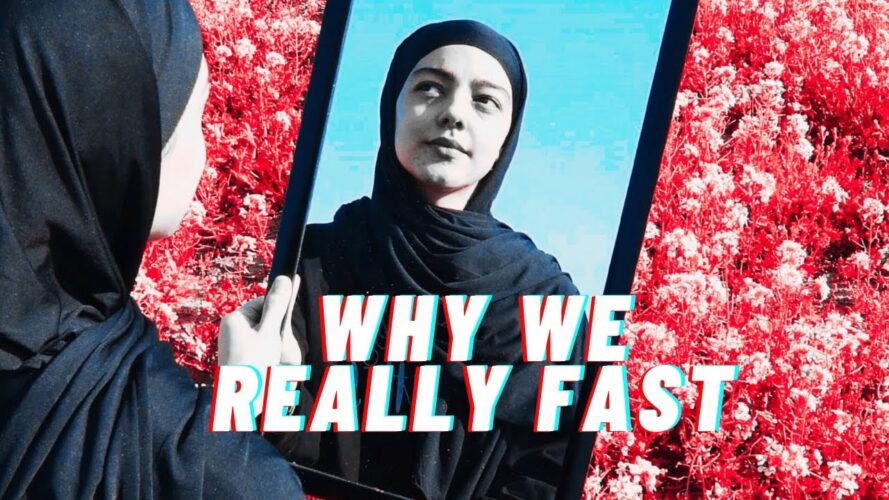Masters of Truth and Sincerity have said: “Bodily strength depends on food and drink, whereas spiritual strength depends on going hungry and thirsty. In God’s domain, hunger is a divine food.”
With Ramadan approaching, I’ve been reflecting on what I want to focus on this year. For many in the Western world, it’s just another day — part of the social construct they live in, and that’s okay. But from a Muslim perspective, Ramadan holds immense spiritual significance.
We believe that during this month, the evil that exists cannot harm us, and whatever actions we commit come solely from within. This doesn’t mean we won’t make mistakes or do wrong; it means that external forces cannot influence us — only our own desires and inclinations remain as the primary challenge. This is why Ramadan is a time for self-discipline and spiritual purification.
Why Do Muslims Fast?
No, it’s not to lose weight or to break bad habits — though those may be side effects. It all comes down to intention. As Muslims, we believe in a singular reality where God is ever-present, always watching. We fast simply because God commands us: “Fasting is prescribed to you as it was prescribed to those before you, so that you may attain Taqwa.” — Quran 2:183
That’s the first purpose. The second is to seek closeness to God — to become more aware of Him. But this isn’t guaranteed; it’s not a formula. If it happens, it happens. And when it does, you’ll know. It’s a moment of realisation that everything in the material world is temporary — fading in and out of existence — except for God, who is everlasting.
“And what is the life of this world except the enjoyment of delusion?” — Quran 3:185
People change. I’ve met those who transform completely through Ramadan, and I’ve also seen people who return to their usual habits once it ends, with no lasting change.
More Than Just Giving Up Food
Fasting isn’t just about abstaining from food and drink, as many assume — even some Muslims. Yes, it teaches self-control, helping to restrain the impulsive, destructive nature within us. But there’s more.
The Prophet (Pbuh) said, “Whoever does not give up false speech and evil actions, God has no need of his leaving his food and drink.” — Bukhari
This means that fasting is meaningless if a person continues to lie, gossip, argue, or engage in immoral behaviour. The true goal of fasting is to refine character and improve actions. In Islam, good character is central to faith, and fasting serves as a powerful means to achieve this, as the Prophet (Pbuh) said, “The best among you are those who have the best character.” — Bukhari
True fasting isn’t just about abstaining from food — it’s about developing sincerity, self-restraint, and integrity in all aspects of life.
The Path to Empathy
Fasting teaches many lessons. It helps slow down the wheel of desire and encourages mindfulness about oneself. The pain of hunger and the desire for water to quench thirst foster high levels of empathy. While you could read a book on empathy and learn to alter your behaviour superficially, true empathy is about experiencing and understanding the struggles of others.
Through fasting, you gain a deeper appreciation for the less fortunate — those who may be living under a bridge, uncertain of when their next meal will come. You begin to comprehend what it means to face such hardships, which in turn enhances your understanding of the vital work charities do.
Not many people know this, but Muslims are the most active charitable givers globally. When it comes to humanity, Muslims fully embrace the call to help others.
The Nature of Life
Life is such that when everything seems to be going well, it can change in the blink of an eye. This unpredictability forces us to learn patience and tests our willpower in the face of adversity. Fasting cultivates willpower and patience like nothing else.
In our modern world, where we can obtain almost anything at the click of a button, we often lose sight of the value of delayed gratification. This environment can make us complacent, leading us to believe we are in control. However, the reality is that nothing is truly within our control.
Have you ever looked back at your past and witnessed empires crumble into nothing, only to give birth to something new? This cycle of rise and fall is part of life, reminding us that challenges are inevitable. As mentioned in the Quran: “And We will surely test you with something of fear and hunger and a loss of wealth and lives and fruits, but give good tidings to the patient.” — Quran 2:155
In essence, fasting serves as a profound teacher of empathy, willpower, and patience, urging us to develop these qualities that enrich our character and deepen our understanding of life and those around us.
Final Thoughts
As Ramadan approaches, we are reminded of its profound spiritual significance. Fasting is not merely about abstaining from food and drink; it is an opportunity for self-discipline, moral refinement, and the development of a deeper connection with God. This month encourages us to cultivate empathy through our shared experiences of hunger, fostering a greater appreciation for the struggles faced by the less fortunate and motivating us to give generously.
Moreover, fasting teaches us invaluable lessons in willpower and patience, highlighting that challenges are an inevitable part of life. Let us use this time to reflect on our intentions and strive for self-improvement. By embracing the lessons of Ramadan, we can work towards being more compassionate and mindful in our daily lives.
















